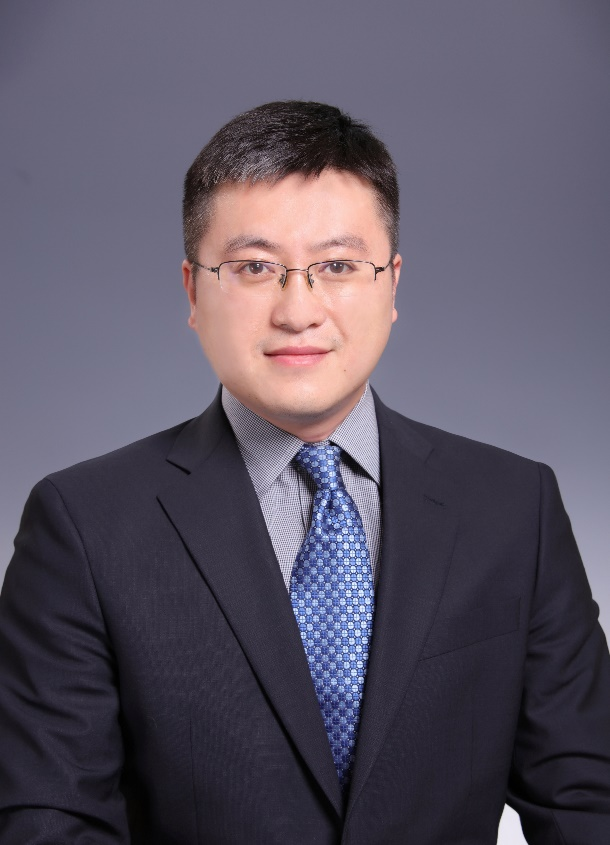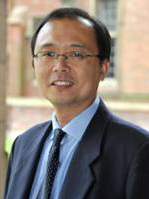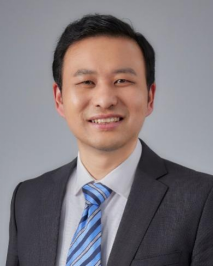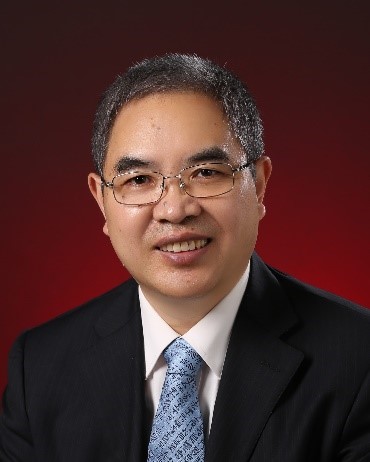 会议背景
会议背景2025通信系统与通信网络国际学研讨会(CSACN 2025)作为第七届IEEE通信、信息系统与计算机工程国际会议(CISCE 2025)的研讨会将于2025年5月9-11日在中国广州举行。在当前快速发展的信息时代,通信、信息系统和计算机工程领域的研究和应用已经深入到社会的方方面面。此次会议聚焦通信系统与通信网络主题,邀请来自该领域的知名专家和学者进行主题报告,分享他们在这些领域的最新研究成果和经验,与会人员就相关主题,可进行深入讨论和交流。组委会诚挚地邀请您参与,共同探讨通信、信息系统和计算机工程领域的未来发展。
*主题精细,审稿对口
 组织机构
组织机构主办单位:IEEE、广东工业大学
承办单位:广东工业大学信息工程学院、IEEE信息论学会广州分会
协办单位:湘潭大学、五邑大学
 联系方式
联系方式会议秘书
Hanna/ 何秘书(邀请码:H8053)
电话联系:13902493194
电话联系:16782275466
会议邮箱:iccsacn@163.com
 【微信联系】
【微信联系】
备注“CSACN咨询”
 大会组委
大会组委
Prof. Chengxiang Wang, MAE, FRSE, Fellow of the European Academy of Sciences and Arts, IEEE Fellow, IET Fellow, CIC Fellow, Southeast University, China Speech Title: TBD Abstract: TBD |
 Prof. Feifei Gao, IEEE Fellow Department of Automation, Tsinghua University, China Speech Title: Key Technologies and Prototype Design for Integrated Sensing and Communications System Abstract: In the future, millions of base stations (BSs) and billions of users (UEs) will natively build an integrated sensing and communications (ISAC) system, which can utilize intelligent ubiquitous methods to realize the ultimate goal of sensing, i.e., constructing the global mapping from real physical world to digital twin world, while providing communications services at the same time. For this purpose, we conduct a series of theoretical and technical researches on ISAC, in which we decompose the real physical world into static environment, dynamic targets, and various object materials. The ubiquitous static environment occupies the vast majority of the physical world, for which we design static environment reconstruction (SER) scheme to obtain the layout and point cloud information of static buildings. The dynamic targets floating in static environments create the spatiotemporal transition of the physical world, for which we design comprehensive dynamic target sensing (DTS) scheme to detect, estimate, track, image and recognize the dynamic targets in real-time. The object materials enrich the electromagnetic laws of the physical world, for which we develop object material recognition (OMR) scheme to estimate the electromagnetic coefficient of the objects. Finally, based on these theoretical researches, we build an ISAC hardware prototype platform working in millimeter wave frequency band, realizing high-precision SER, DTS, and basic OMR, which provides preliminary verification for building the digital twin for communications networks. |
 Prof Kang Li, Chair of Smart Energy Systems School of Electronic and Electrical Engineering, University of Leeds, UK Speech Title: Machine Learning in Green Transportation – Some Case Studeis Abstract: The transport decarbonization increases the coupling of the transport and energy systems, demanding a holistic and data-driven approach to manage and operate the systems with increased complexity. This talk presents several case studies in the application of machine learning techniques in holograph based state estimation and management of electric vehicles in complex urban traffic environments. |
 Prof. Chentao Wu, recipient of the National Youth Talent Program, Shanghai Jiao Tong University, China Speech Title: Failure Prediction for Large Scale Storage Devices Abstract: Failure prediction for large-scale storage systems is a critical technology aimed at enhancing reliability and minimizing downtime in data-intensive environments. By leveraging advanced machine learning algorithms, statistical models, and real-time monitoring of hardware health indicators (e.g., SMART attributes), this approach identifies early warning signs of potential storage device failures. Proactive prediction enables timely maintenance, data migration, or component replacement, thereby preventing catastrophic data loss and service interruptions. Such systems are particularly vital for cloud platforms, data centers, and AI-driven infrastructures where petabytes of data are processed daily. Current research focuses on improving prediction accuracy through multimodal data fusion, adaptive thresholding, and anomaly detection. In this report, effective failure prediction methods will be introduced, which are not only optimize operational costs but also ensures seamless continuity in mission-critical applications, making it a cornerstone of modern storage architecture. |
Prof. Yonghui Li, ARC Future Fellow, IEEE Fellow School of Electrical and Information Engineering, University of Sydney, Sydney Speech Title: Beyond 5G towards a Super-connected World Abstract: Connected smart objects, platforms and environments have been identified as the next big technology development, enabling significant society changes and economic growth. The entire physical world will be connected to the Internet, referred to as Internet of Things (IoT). The intelligent IoT network for automatic interaction and processing between objects and environments will become an inherent part of areas such as electricity, transportation, industrial control, utilities management, healthcare, water resources management and mining. Wireless networks are one of the key enabling technologies of the IoT. They are likely to be universally used for last mile connectivity due to their flexibility, scalability and cost effectiveness. The attributes and traffic models of IoT networks are essentially different from those of conventional communication systems, which are designed to transmit voice, data and multimedia. IoT access networks face many unique challenges that cannot be addressed by existing network protocols; these include support for a truly massive number of devices, the transmission of huge volumes of data burst in large-scale networks over limited bandwidth, and the ability to accommodate diverse traffic patterns and quality of service (QoS) requirements. Some IoT applications have much stringent latency and reliability requirements which cannot be accommodated by existing wireless networks. Addressing these challenges requires the development of new wireless access technologies, underlying network protocols, signal processing techniques and security protocols. In this talk, I will present the IoT network development, architecture, key challenges, requirements, potential solutions and recent research progress in this area, particularly in 5G and beyond 5G. |
 Professor Pingyi Fan, IET Fellow Academician of the United States National Academy of Artificial Intelligence Tsinghua University, China Speech Title: How information theory shapes the theory and practice of artificial intelligence Abstract: The report mainly discusses the applications and challenges of information theory in the developments of Artificial Intelligence and Machine Learning, covering its application in generative models, reinforcement learning, distributed federated learning etc. and the AI implementations in autonomous driving, semantic communication and other scenarios. At the same time, the challenges of AI interpretability, model design, and coordination with humans are considered, and the future research directions of the combination of information theory and AI is prospected. |
 投稿须知
投稿须知◆ 会议仅接受全英稿件。如需翻译服务,请联系会议老师。
◆ 论文应具有学术或实用价值,未在国内外学术期刊或会议发表过。发表论文的作者需提交全文进行同行评审,仅做报告不发表论文,只需提交摘要。
◆ 作者可通过CrossCheck, iThenticate或其他查询系统自费查重,否则由文章重复率引起的被拒稿,将由作者自行承担,涉嫌抄袭的论文将不被出版。
◆ 论文格式需按出版社要求的模板进行排版,会议论文模板下载→ 前往“会议资料”查看
◆ EI会议的稿件排版后不得少于4页。
◆ 投稿流程全程在艾思科蓝线上完成,可点击下方图标直达投稿页面
 报名须知
报名须知**每篇录用缴费的论文允许一名作者免费参会
1.口头报告:论文一经录用即可注册参会报名口头报告,时间为15分钟,含问答环节。无投稿亦可报名。
2.海报展示:论文一经录用即可注册参会、展示海报,海报尺寸为A1竖版,彩色,JPG/PNG格式(宽*高:594mm*841mm)。
*无投稿亦可报名;
*参考模板:https://mp.weixin.qq.com/s/t1El9RU3b0AP1A2rC-L7Wg;
*提交海报至会议邮箱:iccsacn@163.com,邮件主题:现场参会/线上参会+姓名+论文订单号
3.听众参会:无需提交稿件,直接注册听众参会即可
*汇报PPT和海报,请于会议前一周提交至大会邮箱 (iccsacn@163.com)
*本会议由艾思科蓝支持在线报名,可点击以下链接报名参会:
 资料下载
资料下载 征稿主题
征稿主题宽带通信技术 | 网络安全与隐私保护 |
• 载波密集波分复用(DWDM)技术 | • 通信网络中的加密算法与协议设计 |
| 无线传感器网络 | 边缘计算与云计算 |
• 低功耗无线通信协议优化 | • 边缘计算下的动态资源管理 |
**主题更精细,专家审稿更对口
+